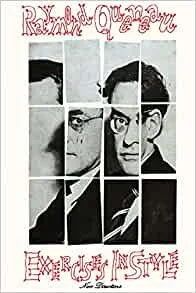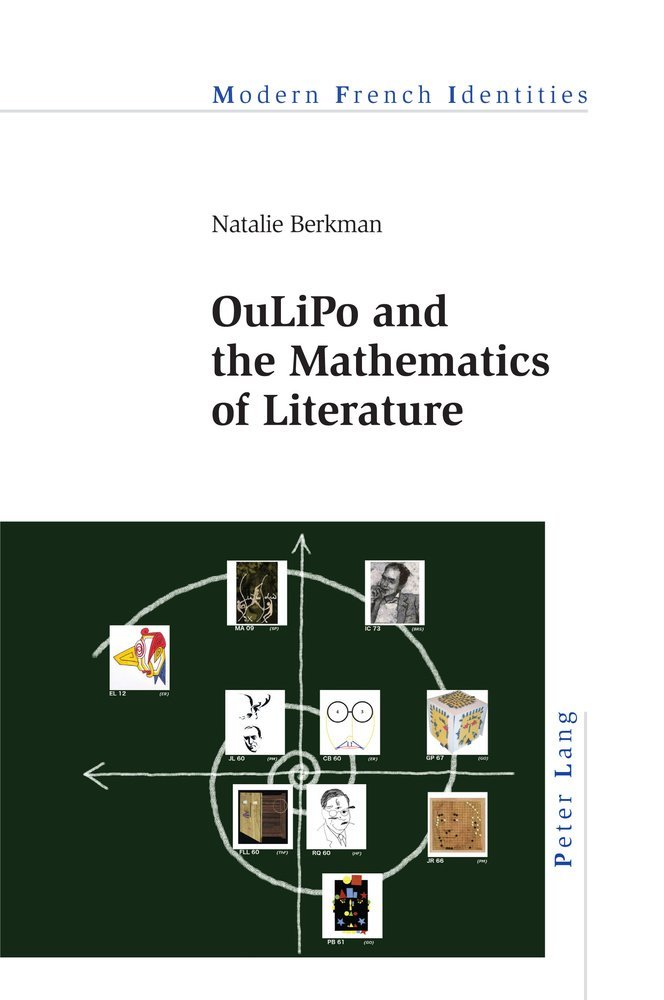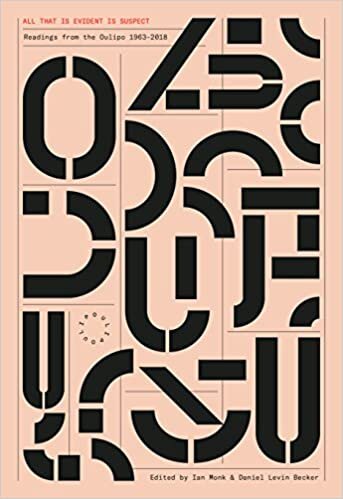This is a compendium of writings from the Oulipo, the "workshop of potential literature" started in 1960 in France. Oulipo is based on constraints, be they mathematical or literary.
For example, one constraint is the lipogram, in which the writer constructs a piece of work without the use of a particular letter. With a wry smile, the Oulipo regards those writers who came up with similar ideas before its inception as anticipatory plagiarists.
Where this work differs from others of a similar nature, notably the Penguin Book of the Oulipo, is in its inclusion of writing that was never intended to be published.
For example, there are the minutes of meetings of the Oulipo and correspondence between its members. This serves to very much enrich the offering, as it provides an insight into the nature of the group and of its personalities, and the relationships between them. Some of the pieces and comments are quite amusing. I especially liked:
"Les fous littéraires, Blavier’s continuation of Raymond Queneau’s long-considered but finally abandoned project of assembling a compendium of literary madmen: writers who took themselves terribly seriously and were completely wrong about everything."
"Philosophers at the Gödel Institute für Logik have definitively proved that in order to erect a sign in the middle of a lawn that says no walking on the lawn, someone has to walk on the lawn."
and
"In observance of World Teachers’ Day, the Vientiane satellite and the Digital Francophone Campus will be closed on Friday, October 7."
There are also pearls of wisdom and insight in these pages. For example, Jacques Duchateau said, in a 1963 lecture:
"Writers do not live cloistered alone in their sole domain. But we have lived until now with the postulate that literature and “science” are irreconcilable. This may be true, but it has still yet to be proven."
I would suggest that, judging from the writings of the Oulipo, what has been proven is the opposite, that a mathematical approach can very much be brought to bear on constructing a poem or a piece of prose.
And:
"It was Rivarol, the right-wing anarchist, who stated: “A man who is right twenty-four hours before everyone else is taken for a lunatic for twenty-four hours.”
There are also some beautifully expressed observations. For example, Marcel Bénabou writes:
"...he has not managed to reach the heights of rigor and perfection to which he aspires. And, with a despair that grows each day, he discovers the vertiginous abyss of his own incompetence."
The book includes some ideas and readings that will bear revisiting. For instance, a couple of writers collaborated on what they called "microfictions". This involved one of them writing critiques of short stories which did not yet exist, and then the other one writing the stories based one critiques!
I also enjoyed Paul Braffort's "Imaginary libraries", with its classification of libraries into imaginary real libraries, real imaginary libraries, and others.
There are a few things I didn't like about the book. I found a lot of the poetry boring. It may have been clever, but I am afraid I detected little literary merit in much of it.
Another problem is that unlike the Penguin book mentioned earlier, there are no indications of the technique used. I realise that, for the ardent Oulipian, that is probably the point: to apply a technique without the reader being consciously aware of it. Nevertheless, in a book devoted to providing a representative sample of Oulipian work, I think a few signposts would not have come amiss.
I found it interesting to read Calvino's explanation of how he wrote "If on a winter's night a traveller", although not being a logician I could not understand it!
Despite these misgivings, the book is a marvellous collection of Oulipo writings. Although I read the book from start to finish, it very much lends itself to dipping in at random, and savouring the inventiveness of the writers. Highly recommended.
Please note: I was sent a free copy of this book, but that has not influenced my review of it.
If you found this article interesting, why not subscribe to my newsletter, Terry Freedman’s Books Bulletin?










